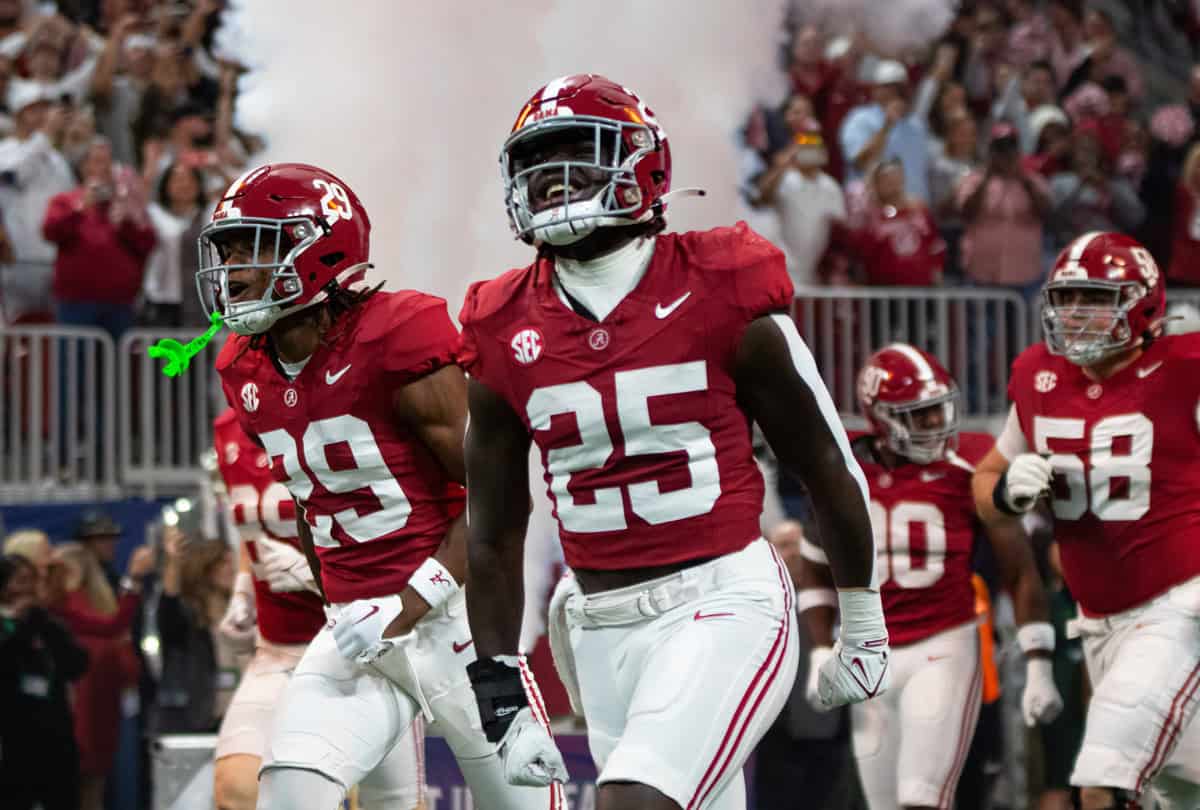Reporters were milling around Sun Life Stadium, casually chatting up Alabama players and coaches during media days as they prepared for the upcoming national championship game.
The game was only two days away, but most of the players seemed less than enthused with exploring the future site of the championship game and more content to avoid any interaction with the media. Most players were comfortable to sit in the stands and make the reporters come to them. When they were interviewed, they answered the questions quietly and quickly sat back down when they were done.
Opposite the players, however, came a loud yell, a fixture on the sidelines of Bryant-Denny Stadium: “Yeah, yeah, yeah, yeah!”
Alabama strength and conditioning coach Scott Cochran had let everyone in the stadium know where he was. But he wasn’t trying to fire up one of his players, he wasn’t getting riled up with another of the Alabama coaches. In fact, he wasn’t doing anything particularly exciting at all.
He was simply talking to a reporter about his responsibilities as strength and conditioning coach. Cochran has made a name for himself among the Alabama fandom with such fiery displays. He’s presented himself as a molder of future football stars and someone who’s likely to address a complete stranger the same way he would a player.
Freshman running back T.J. Yeldon, a naturally quiet guy who lets his play on the field do the talking, said it was a bit of a culture shock for him to see Cochran for the first time.
“He was like a loud guy, and just kept screaming and stuff when we first got there, when we worked out,” Yeldon said. “But after I got used to it, I understood why. Just stay working on us, staying on us, getting everybody focused.”
Senior tight end Michael Williams, who’s gotten a little more used to Cochran’s demeanor in the weight room, said his attitude is something younger players get used to as the season progresses.
“You have to get used to it,” Williams said. “You have to get adjusted to it, because you walk in the first day, you hear somebody hollering, you don’t know who it is. Then once you get over, you realize that’s just Coach Cochran being Coach Cochran.”
Still, it’s not all fire all the time for Cochran — he has another side to him when addressing players that most fans don’t get to see. Despite some initial intimidation for the younger players, Cochran connects with the entire football team. He spends more time with them than anyone else on the Alabama coaching staff, and makes himself someone to confide in, a giver of advice and all-around mentor.
“I’ve got 130 players,” Cochran said. “A lot of them are scared to come walk in that door. But once they do, they’re going to see a different guy than the guy that’s on the floor. They’re going to see the real, authentic who I am, what I’m about.”
And even though Cochran’s job is to prepare and maintain players’ conditioning for football – a job he’s had much success doing – he said his ultimate purpose as a coach isn’t to simply beef up his players. His real job is to prepare them for a future outside of football, past college.
“Every chance I get, I’m going to bring my three kids around them,” Cochran said. “I say, ‘this is what it’s like in the real world.’ Because to me, college is setting you up. Because if you miss a class, we’re going to handle that. If you miss work, you lose your job.”
Cochran said he stresses the same qualities that Nick Saban preaches: doing things the right way, all the time. As much as Cochran said he loves his job, he doesn’t count success by the weight a player’s able to lift, or how many of his former players enter into the NFL, or even his three championships his teams have earned in his six years at the position.
For Cochran, true success comes when his former players are able to become responsible, successful men after college, men with full-time jobs who provide for their families by using the lessons he taught them.
“Those are the things that you’re always coaching,” Cochran said. “Those are the little things that make them become men you’re fired up about.
“You can get as many rings as you want, but when you see a guy with that, you feel like you’ve accomplished something.”






